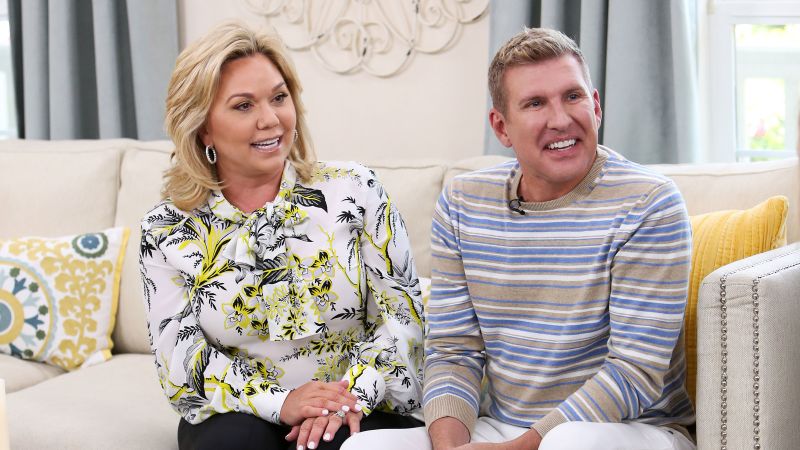In a significant development that underscores the complexities of the American justice system and its interplay with celebrity culture, former President Donald Trump has issued full pardons to imprisoned reality television stars Todd and Julie Chrisley. The decision, announced by a White House official, comes after the couple was sentenced in 2022 for engaging in a conspiracy to defraud banks, resulting in financial losses exceeding $30 million. This notable legal case attracted a great deal of public and media attention, primarily due to the Chrisleys’ fame from their reality show “Chrisley Knows Best.”
Adding to the serious nature of their convictions, the Chrisley couple also faced charges related to tax crimes, including attempts to defraud the Internal Revenue Service (IRS). This blend of serious financial crimes and their public persona as reality TV stars has made their situation particularly controversial and sensationalized. The pardons stand out as a reflection not only of Trump’s previous tenure in office but also of his continuing engagement with celebrity figures post-presidency.
Trump’s communication regarding the pardons was notably personal. In a post shared on the social media platform X, Trump’s adviser, Margo Martin, released a video that captured Trump informing Savannah Chrisley, the couple’s daughter, about the plans. This type of personal outreach, which included Trump expressing his hope that her parents would soon be “free and clean,” demonstrates a unique intersection between political power, personalized communications, and celebrity influence.
During the phone call, Trump acknowledged that while the situation was “terrible,” he framed the subsequent pardons as a “great thing.” His remarks illustrate an approach that not only resonates with individual cases but also aligns with the narratives that his supporters might favor. Notably, Alice Johnson, who was also pardoned by Trump in his first term and who now serves as his “pardon czar,” was present in the Oval Office for the call, reinforcing the broader narrative of Trump’s approach to clemency.
Savannah Chrisley has been an active participant in supporting her parents throughout their legal struggles. She publicly endorsed Trump at the Republican National Convention held in Milwaukee, Wisconsin, in July and has participated in initiatives such as “Team Trump’s Women Tour.” Her media appearances have often focused on advocating for her parents, making her a relatable figure for many in the audience who sympathize with their plight.
Currently, Todd Chrisley is incarcerated at a Federal Prison Camp located in Florida, where he is serving a 12-year sentence. His wife, Julie Chrisley, is serving a 7-year sentence at a Federal Medical Center in Lexington, Kentucky. The couple’s deteriorating circumstances have been magnified by their public persona, often portrayed as a luxurious lifestyle on television, which adds a layer of complexity to their criminal convictions.
The Chrisleys were convicted in June 2022 after a rigorous trial, leading to a significant public debate concerning the nature of their alleged crimes and the ramifications of celebrity on justice. Throughout the trial, both Todd and Julie maintained their innocence and have been engaged in appeals against their criminal convictions. Their public denials and ongoing legal battle resonate with many who are drawn to underdog stories, enhancing their media presence.
As a final point, it’s essential to note the contributions to this story by Kristen Holmes, reflecting the collaborative nature of journalism in covering such high-profile legal cases. The interplay of justice, celebrity, and media representation continues to spark discussions about the effectiveness and fairness of the judicial process, particularly regarding prominent public figures. In the case of the Chrisleys, the intersection of their legal challenges and public personas serves as a focal point for ongoing societal conversations surrounding accountability and redemption.



